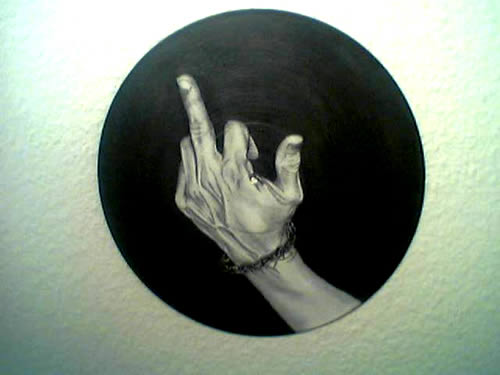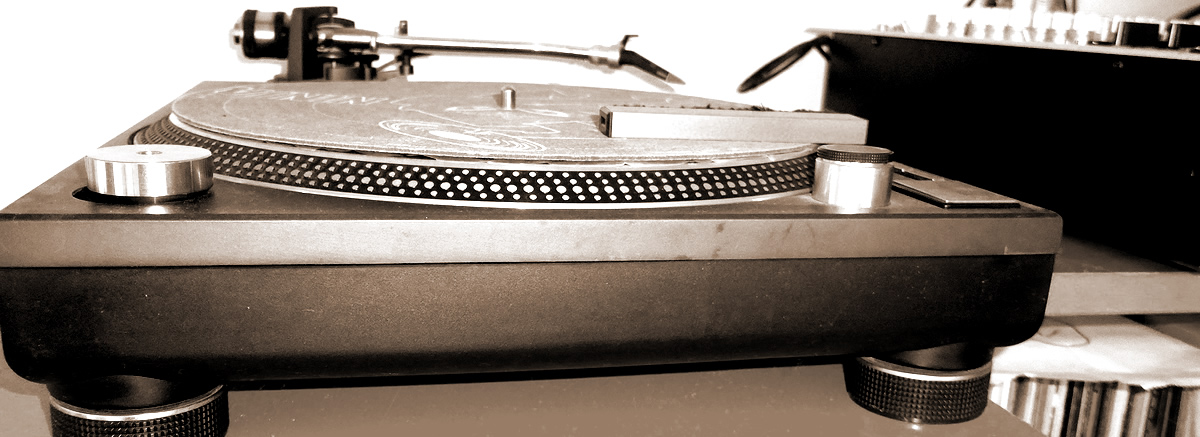“Here reigned a species of things that was, no matter how compliantly it bowed to the minor whims of fashion, in the main so wholly convinced of itself and its permanence that it took no account of wear, inheritance or moves, remaining forever equally near to and far from its ending, which seemed the ending of all things.” ~ ~ Walter Benjamin: Berliner Kindheit um 1900
79.32 GB. That’s the current size of my mp3 music collection. 30 days 10 hours 51 minutes and 38 seconds worth of continuous music stored neatly on one computer. I did not have to measure this, the mp3 app volunteered to calculate this for me. It does things like that. On another, older hard disc I store another 53.7 GB worth of mp3s, some may well be doubles, but I can’t get myself to sort through them at the moment. Most people stream their music these days, I still collect it. And that’s only the beginning.
I always fancied myself an early adapter of sorts (never super early, but usually I stumbled onto a new trend at least 5 minutes before the masses), yet i allow this weight to clamp down my feet. I still own over 5’000 vinyl records, plus some 1000 CDs and close to 500 cassettes. This is a terrible weight. But I simply can’t get myself to throw it all away. All the rational facts suggest, ditch these records (and the mp3s), get with the times and subscribe to some streaming service. Yet I hesitate.
As you can imagine these records take up a lot of space, I mean actual physical, meat space. Usually at least one wall of one room in any given apartment is taken up by the damn records on their shelves. Moving the records is no small feat either, and every time we do move to a new apartment I curse the records profusely, promise myself to get rid of them. And soon. But then nothing happens, the records just sit there, collecting dust, every few months I remember, that I should start to get rid of them. But then — I simply can’t do it.
Both my cassette players (yes, I had two of these for dubbing purposes, record from one to the other) stopped working a few years ago. The latest computers don’t even come with CD players anymore. Their makers have decided (for us) that music is to be “streamed” from now on, yes, “streamed” from the “cloud” (that’s just another word for “the internet”), thank you very much (never mind that these same computer companies also run subscription based streaming services). So clearly, vinyl records, cassettes and CDs are or will soon be obsolete data storage units. And let’s not even look into the fact that I also still have a fair amount of VHS Tapes and DVDs. But the question here is, why?
Most critical readers will by now already have pinned me down as a hopeless victim, lost in “fetishism of commodities” (Marx). But bare with me. For one, I came to most of these records as a semi-professional club DJ. So these were the tools of my trade, if you will. The potential problems started later, after 2002, when I stopped DJing in clubs, and just kept at it as a bedroom DJ occasionally releasing mix tapes. Yet I held on to those damn (and beautiful) records. Held on and held on and held on some more.
Does that make me a hopeless nostalgic, in the conservative sense of the word, or does that make me someone who tries to resist how capitalism constantly tries to entice us to buy new things, new technologies? Or am I just a hoarder? A pack rat? Or maybe a bit of all of these things? Loyalty may also play a role as do some more fundamental questions I have on trendiness and the economy. But more on that later.
Nostalgia is an important factor, yes, but it’s also a fascination with, quite vague for now, the way digitization reorganizes the way we memorize and organize our objects.
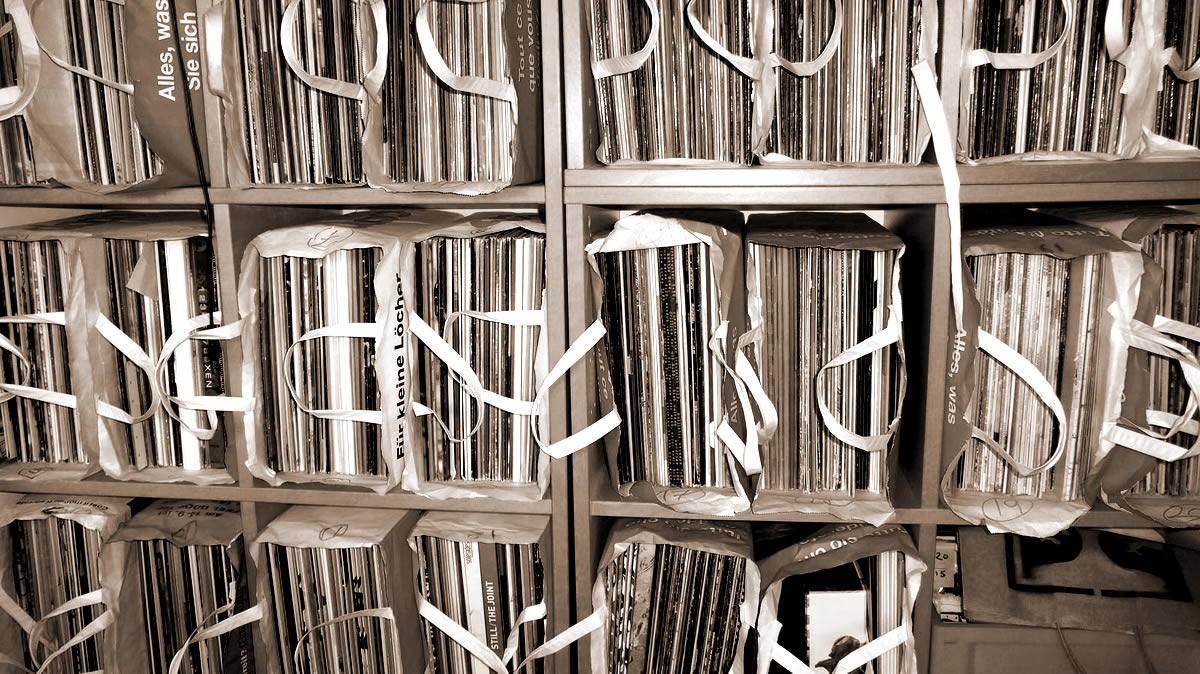
Search vs. haptic memory
“Memory is not an instrument for surveying the past but its theater. It is the medium of past experience, just as the earth is the medium in which dead cities lie buried. He who seeks to approach his own buried past must conduct himself like a man digging. Above all, he must not be afraid to return again and again to the same matter; to scatter it as one scatters earth, to turn it over as one turns over soil.” ~ Walter Benjamin: Berliner Kindheit um 1900
As a DJ I mostly work digitally these days. It is mostly then that I notice a big difference in the way my memory treats analog versus digital music. Generally speaking the digital offers huge advantages, copying and archiving files, the ability to connect items through hyperlinks, but of course the search feature being the main one. When it comes to music the scope is limited however, because with files of digital music only so much is searchable: titles, names, some meta data. That’s it. Search features do offer many additional advantages and some do concern music. Just think of lyric searches on the internet, that can help find particular songs much faster than digging through crates to find them would. Or background information on artists or albums.
But what interests me here are the haptic elements of how my memory seems to be organized. The physical object of a vinyl record with it’s cover and its position in the relative order of my filing system, make up a different kind of memory. The fonts, the colors, the images on covers and labels get associated with parts of the music. I notice how I sometimes remember a certain part of a particular song in a much more visual way, I tend to remember it as the actual object, the record in its place on the record shelf. The physicality of touching the records creates a story that for me is much easier to remember.
Compared to that a mp3 collection feels much more abstract. I have much more trouble finding certain melodies, and have started to use a different methodology, organizing the music according to bands and artists, instead of by genre. The ability to back up the collection on several hard discs assures me, that should I lose it, this would be no big drama. My records, they could melt. In theory.
Speaking of genres, my record filing system is probably only understood by me, in its strange mixture of genres, artist names and usage frequency. Which is fine. Where as the mp3 filing system was imposed to me by the mp3 app that I use. For a while I tried to resist this imposed order, but then finally caved in. Even in the small details the process earns distinction with vinyl records. Many of them are full of stickers and writing, which works as a sort of annotation system. For instance, I write down the bpm (beat per minutes) of certain songs, mark my favorite tracks or parts of them, even at times note other songs that worked well with this one. While I sometimes do tag my digital media, I notice that I hardly ever use the annotation systems to find things.
I have not talked much of books yet, the great exception for me. With books search and annotation make so much sense, because both in the physical and the digital book it concerns pieces of text. Whether I mark my quotes with a pencil in a physical book or highlight them in an app does not make such a fundamental difference, except, again, when it comes to finding quotes in a book. I often remember a quote by its position in the printed book, towards the end, beginning, in the middle etc. In digital books this again becomes much more abstract. But on the whole, in books the switch to the digital was easier to digest for me. Search offers many huge advantages. What I do notice however, is that I tend to not keep digital books, mostly I just delete them after I read them. I don’t keep all books on paper either, but certainly more of them. Did a different type of attachment to the book develop because I held it in my hands?
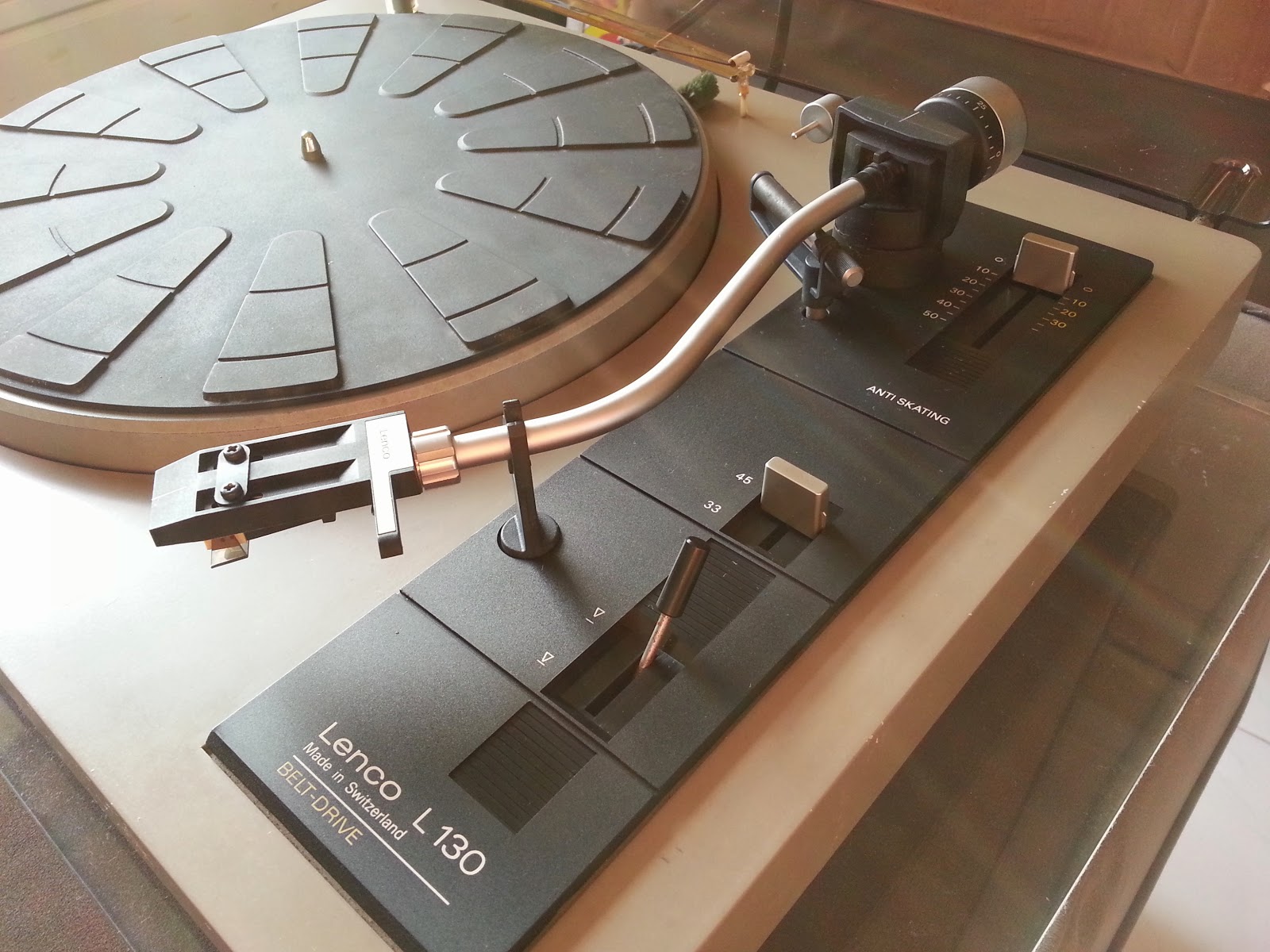
My first Lenco
Like most kids in the 60s and 70s I grew up listening to fairy tale cassettes on shitty cassette players. When I got a record player as the oldest child of three I teased my younger sisters because they were still listening to cassettes. This first record player was a really cheap number, capable of cuing up to 5 records at a time with an automatic record changer. Think of it. Up to maybe 2 hours of continuous music. Today, as mentioned above, I could get my mp3 collection to start playing for more than a month without interruption. For my confirmation, I received my first Lenco record player, and I was very proud.
My very first record I bought it in a supermarket, it was a 7″, Stevie Wonder’s I Wish. I must have been 14 years old at the time, but I still own that record, it still sounds fine. As a teenager I often used up all my savings, plus the birthday and christmas money, to buy records. Memories and even moods got attached to many records, the few I stole (for a short period as a skint teenager), the others I found on flea markets or bought on trips abroad, some that were given to me by friends or record labels. With mp3s this does not happen. The purchase or download is just a few clicks away and usually happens in the background while I am busy doing other things. It is much more rare that I listen to new mp3s right after I downloaded them, but when I used to come home after record shopping I instantly started my stereo and put the new records on.
So physical objects can carry memories, hold narratives in a way that, at least for me, digital objects can’t. There is no need to wax overly romantic here. But many of these aspects do get lost in the switch to the digital that is aggressively imposed on us. My old Lenco from 1978 still works and could still do its job. Since my first mobile phone in 1998 I lost count of how many phones I have gone through, at least 12, probably more.
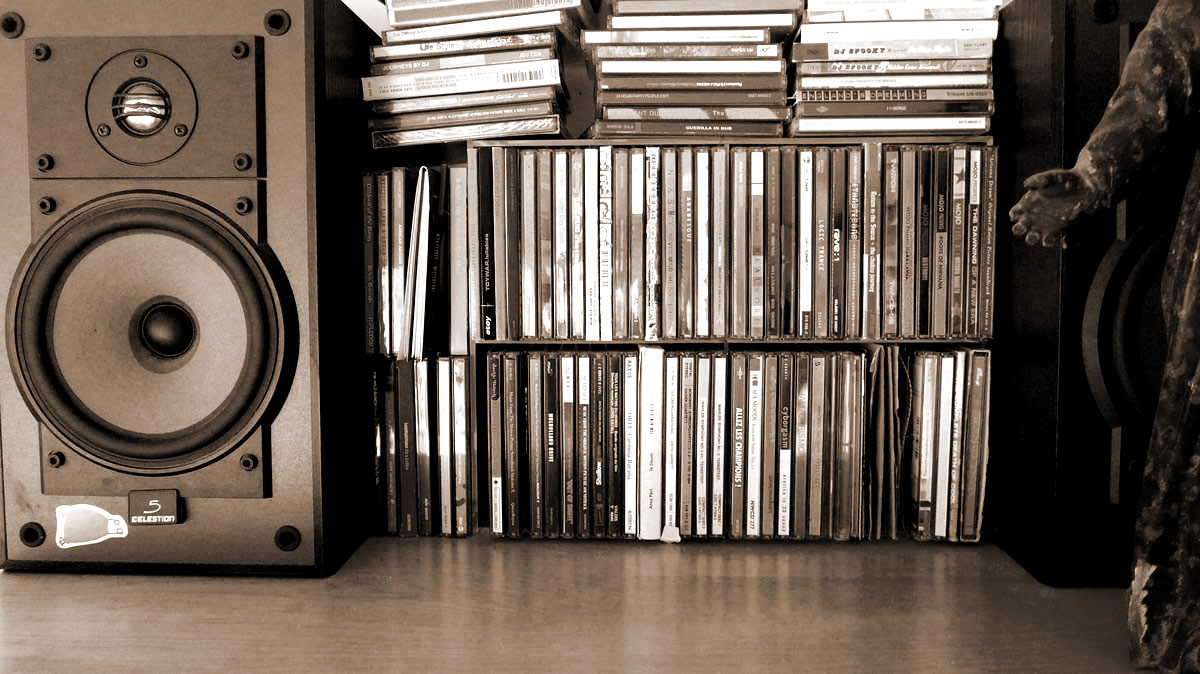
What got me started on this?
“The triumph of advertising in the culture industry is that consumers feel compelled to buy and use its products even though they see right through them.” ~ Adorno, Horkheimer – Dialectic of Enlightenment
As the quotes suggest I recently read about Walter Benjamin and his book Berlin Childhood around 1900, in which he contemplates his youth to study how obsolete technologies keep getting replaced by new ones, in this case the old panoramic theaters of his youth with movie theaters. Benjamin worked out one of the key mechanisms of capitalism. Consumers keep getting pushed and shoved to adopt newer, supposedly better technologies and to ditch, sometimes even ridicule, the old ones, that came before, the ones made obsolete by the new. But are newer technologies necessarily better? How much gets lost in the switch? And what happens to old technologies, the losers, the things made redundant? How much of is just the hype machine, the hungry beast, obsessed with perpetual growth? So part of my fascination with old data carriers may have to do with how capitalism imposes new technologies on us. But then again the switch from analog to digital feels like such a fundamental move, that having seen both worlds, I might have just gotten stuck on the cusp of it.
I haven’t even touched on ecological considerations yet, a topic that could be worth another whole blog post by itself. For a while I joked that my vinyl collection is my personal energy reserve. It’s true, if you consider that vinyl is made from crude oil and could probably be melted down to heat our flat for a few days. But also think of all the old record players (as just one example for many obsolete gadgets and technologies) rotting, rusting, leaking away in landfills. Some plastics in landfills will never disintegrate, the metal and rare earth used on the boards will poison the ground water. A way to resist this tendency of throwing away stuff could be to look for different uses of the obsolete things. Just a quick few ideas. We hang old CDs in our garden to keep the birds away. When I lived in San Francisco I collected old TVs that people had thrown out to the street, I stripped them and built a shelf for my books and clothes. And actually, for a while Franziska painted on some old records (see below). Hmm. There are many more to paint.
Everyone wants to get with the program, and for a while I felt pretty ridiculous keeping all my records, while around me all my DJ buddies switched to full digital. The vinyl records revival of recent years might just be the commodification of yet another subculture, or the recycling of yet another trend. But I’m okay with that, at least, for now, I suddenly don’t just look like the old, nostalgic fart, that I might well be. At least until this trend gets old again.
At one point I had double the amount of records, over 9’000 😉 – actually even more than that, over 10’000. Before we moved in 2008 I got rid of half of the records, many of them gems. The guy I asked to sell them for me, has never contacted me since. It’s fine. I am just glad I will only have to schlepp 5’000 records for our next move.
